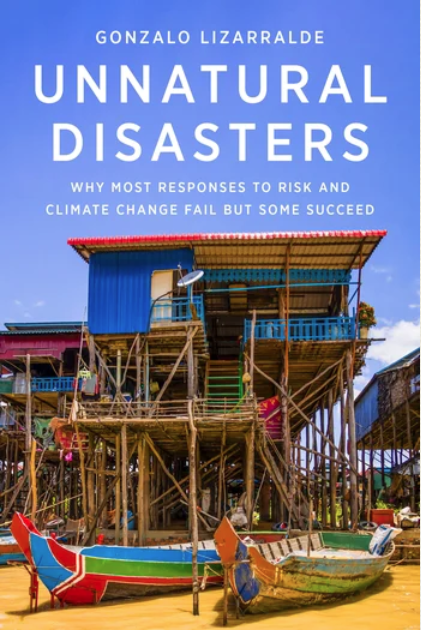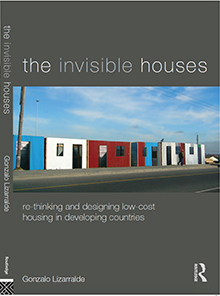
Gonzalo Lizarralde is a professor at the School of Architecture of Université de Montréal. His work focuses on the understanding of risk, low-cost housing, and informality in urban settings. He is interested in the causes and consequences of rapid urban transformation triggered by disasters, climate change, socio-political conflict, and economic instability. He holds the Université de Montréal’s Fayolle-Magil Construction Chair in Architecture, Built Environment, and Sustainability. He is also the director of the IF Research Group (grif) and the Canadian Disaster Resilience and Sustainable Reconstruction Research Alliance (Oeuvre durable). He is a cofounder of i-Rec, an international network of specialists in disaster risk reduction and reconstruction. He is the author of The Invisible Houses: Rethinking and Designing Low-Cost Housing in Developing Countries and the co-author of Rebuilding After Disasters: From Emergency to Sustainability. He is a Member of the College of New Scholars, Artists and Scientists of the Royal Society of Canada, the country’s most important recognition of emerging intellectual leadership.
Unnatural Disasters: Why Most Responses to Risk and Climate Change Fail but Some Succeed
 Columbia University Press, 2021
Columbia University Press, 2021
Storms, floods, fires, tsunamis, earthquakes, tornadoes, and other disasters seem not only more frequent but also closer to home. As the world faces this onslaught, we have placed our faith in “sustainable development,” which promises that we can survive and even thrive in the face of climate change and other risks. Yet while claiming to “go green,” we have instead created new risks, continued to degrade nature, and failed to halt global warming.
Unnatural Disasters offers a new perspective on our most pressing environmental and social challenges, revealing the gaps between abstract concepts like sustainability, resilience, and innovation and the real-world experiences of people living at risk. Gonzalo Lizarralde explains how the causes of disasters are not natural but all too human: inequality, segregation, marginalization, colonialism, neoliberalism, racism, and unrestrained capitalism. He tells the stories of Latin American migrants, Haitian earthquake survivors, Canadian climate activists, African slum dwellers, and other people resisting social and environmental injustices around the world. Lizarralde shows that most reconstruction and risk-reduction efforts exacerbate social inequalities. Some responses do produce meaningful changes, but they are rarely the ones powerful leaders have in mind.
This book reveals how disasters have become both the causes and consequences of today’s most urgent challenges and proposes achievable solutions to save a planet at risk, emphasizing the power citizens hold to change the current state of affairs.
The Invisible Houses: Rethinking and designing low-cost housing in developing countries

Winner of the ACSA/AIA Housing Design Education Award!
There is an increased interest among architects, urban specialists and design professionals to contribute to solve "the housing problem" in developing countries. The Invisible Houses takes us on a journey through the slums and informal settlements of South Africa, India, Colombia, Honduras, El Salvador, Cuba, Haiti and many other countries of the Global South, revealing the challenges of, and opportunities for, improving the fate of millions of poor families. Stressing the limitations of current approaches to housing development, Gonzalo Lizarralde examines the short-, mid- and long-term consequences of housing intervention. The book covers – among others – the issues of planning, design, infrastructure and project management. It explains the different variables that need to be addressed and the causes of common failures and mistakes, while outlining successful strategies based on embracing a sustained engagement with the complexity of processes that are generally invisible.

